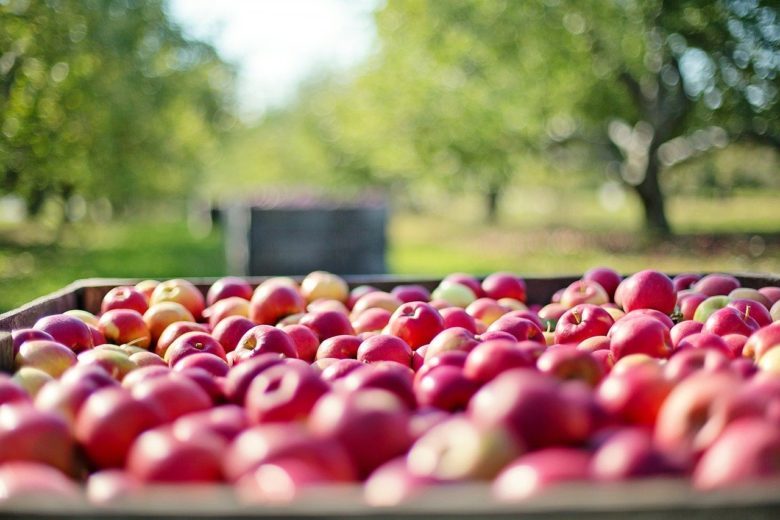
Does Organic Farming Matter? 10 Pros and Cons of Organic Farming
We are reader-supported. When you buy through links on our site, we may earn affiliate commission.
Consumers are increasingly seeking out organic food, primarily produce. In the last few years, the demand for organically grown food has skyrocketed. Growing food organically means cultivating crops without the use of synthetic chemicals or fertilizers. Yet why does this matter? Does it make a difference for human health, rural economies or the environment? Here are 10 organic farming pros and cons.
Pros of Organic Farming
The advantages of organic farming are far-reaching, from improved food outcomes to better treatment of the environment.
1. Environmental Benefits
Perhaps the most widely touted benefit of organic farming is the environmental impact or lack thereof. Heavy pesticide use on conventional crops damages the local ecosystem and can be a health risk to farmworkers. Plus, the effect extends beyond the field, as agricultural runoff is a serious problem that pollutes waterways, such as rivers and lakes. In addition, organic farming focuses on creating healthy soil, preventing erosion, conserving water and increasing biodiversity. These impacts can have a profound effect on the environment, and decrease the adverse influences on our food system.
2. Small Farms
Organic farms tend to be smaller operations than conventional ones, as many organic farms have a more diverse production system, growing multiple crops instead of one or two. They also tend to use fewer resources and require more concentrated labor. Many farms today are owned by corporations, and the American dream of a family farm is quickly becoming a thing of the past. Organic farming provides an alternative for smaller operations to make a stable income while engaging with their land sustainably.
3. Localized Food Systems
Organic farms tend to have more awareness of the local food system and the opportunity to distribute products within a local economy. For example, a conventional soybean farm will send its crop thousands of miles away to be processed, possibly across the ocean. On the other hand, an organic vegetable farm benefits from distributing local produce to their community, cutting back on input and labor costs and maximizing their distribution potential. All of these factors can contribute to the revitalization of the rural economy, which is an essential facet in sustainable farming.
4. Food Security
Organic farming is more resilient in the face of climate change. The standards held by organic certifiers focus on rebuilding soil and addressing problems holistically. Conventional crops are heavily dependent on pesticide-resistant seed and tons of fertilizer. Organic farms cannot use these resources, and therefore can better operate with fewer inputs. These growing methods contribute to food security, especially as weather patterns become more unpredictable, and many farmers face severe drought or flood conditions. Food security is a growing issue, but organic farming may be able to turn the tide.
5. Human Health
It is no secret that pesticides are carcinogenic, and recent court cases have confirmed that their usage links to several types of cancer. While there is some controversy over the discussion of organic food being more nutrient-dense, there is no question that chemical-free food is safer for human consumption. It’s also important to remember that farm laborers, especially on large fruit and vegetable operations, tend to have less protection than other industries, and are vulnerable to pesticide residue during harvest.
Cons of Organic Farming
While organic farming comes with a host of benefits, it’s not without its downsides.
1. Expensive
While it may be a myth that organic food is more expensive for the consumer, organic farming can indeed be more costly for the producer. The organic certification process is not only high-priced, but it’s also time-consuming. For small producers, especially intensive vegetable growers who already grow chemical-free, this certification is not always worth the investment. That said, there are tons of farms that grow organically without receiving the certification. Another aspect of cost for organic farmers is the lack of federal support. While other crops may qualify for significant subsidies and insurance, organic farms sometimes have a harder time receiving monetary support.
2. Time-Intensive
Organic farming operates on a more natural schedule, meaning that things require a little more patience. The certification process itself can take years, especially on land sprayed in prior seasons. Organic farming also requires special considerations that do not apply to conventional farms. For example, constructing features like pollinator habitat and riparian buffers can boost biodiversity and prevent agricultural runoff. While these endeavors may be time-intensive, they’re well worth it in the long run.
3. Organic Pesticides
The truth is that many organic farms, especially large ones, still use pesticides, insecticides and herbicides. However, these organic sprays are not necessarily healthy and can have the same impacts as conventional sprays.
4. Labor Intensive
Depending on the crop, organic farming can be labor-intensive. If you are dealing with an annual plant with a short growing season, like asparagus, you need a large workforce to harvest at the optimal time. If you have an organic herd of beef cattle, you’ll likely need to go to a particular processing facility with the correct certifications. While these extra steps can be tedious, they play an essential role in what makes organic agriculture different from conventional.
5. Inefficient Distribution
There’s a growing debate about buying local versus organic. For example, if a family of four purchases a large amount of organic produce every week, but it must fly across the country after harvest, is it more environmentally-friendly than the conventional produce grown down the road? Inefficient distribution is a massive issue in our modern food system, and organic farming by itself does not present a feasible solution. After all, between 80 and 90% of carrots consumed in the United States are grown in California. While organic produce has many benefits, it tends to get stuck in the same distribution cycle as conventional, which does not cut down on waste or contribute to local communities.
Consumer Choice Matters
Organic farming is a diverse field, and growing practices can vary widely. Some operations are environmentally aware, involved in the local food system and utilizing planet-friendly distribution methods that benefit their business and the community. Other farms operate very similarly to conventional farms, maintaining the lowest levels of practice necessary to obtain certification. Nevertheless, organic farming does matter and will make a difference. However, much of this industry relies on consumers and the choices they make. Supply is dependent on demand. With more consumers seeking out local and organic food, organic farming may continue to become more mainstream. However, it’s crucial to remember the pros and cons of organic farming to forge a new path for sustainable agriculture.
Share on
Like what you read? Join other Environment.co readers!
Get the latest updates on our planet by subscribing to the Environment.co newsletter!
About the author

Jane Marsh
Starting from an early age, Jane Marsh loved all animals and became a budding environmentalist. Now, Jane works as the Editor-in-Chief of Environment.co where she covers topics related to climate policy, renewable energy, the food industry, and more.





